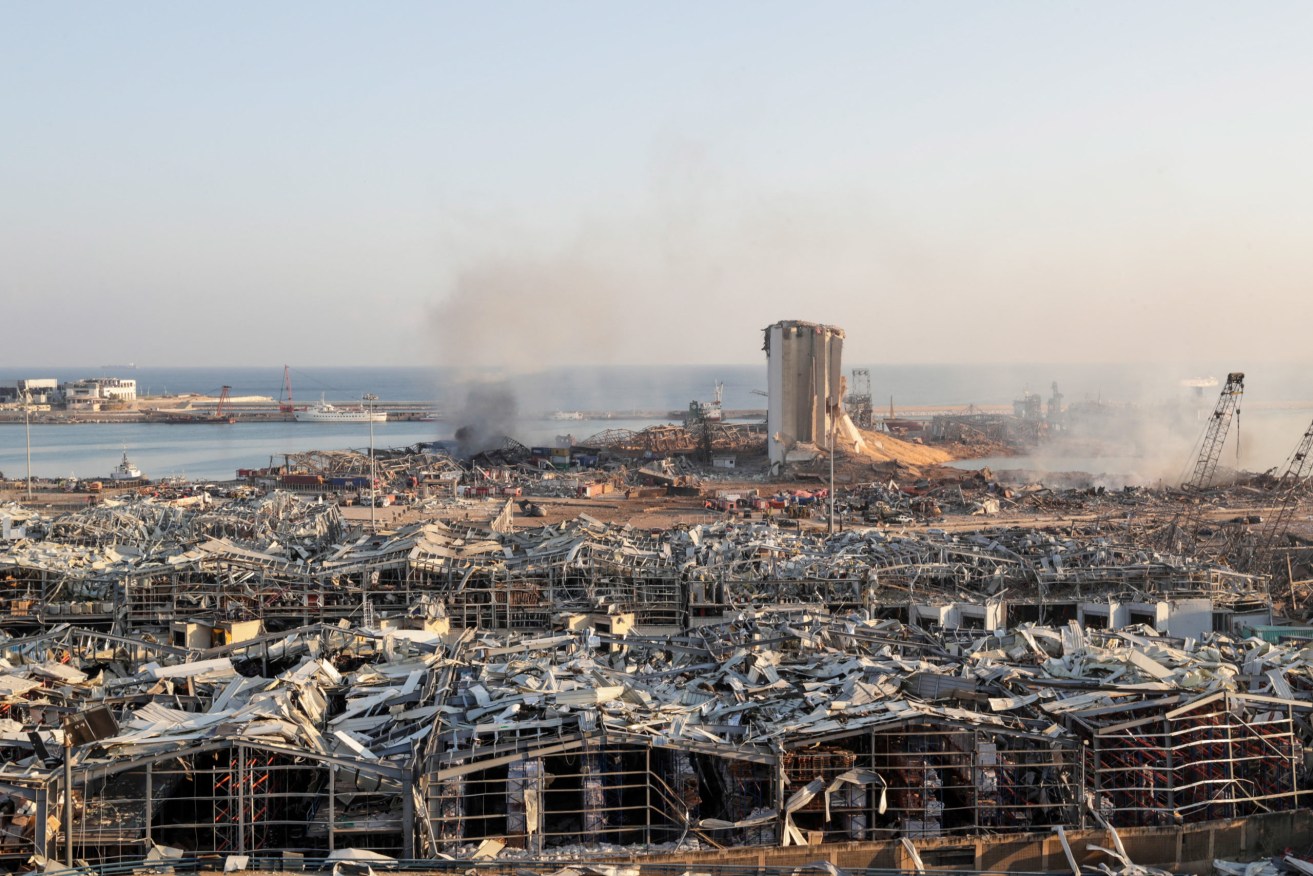Beirut blast one of “biggest ever non-nuclear” explosions
The Beirut explosion which killed at least 135 people and levelled much of the Lebanese capital’s port is “unquestionably” one of the largest non-nuclear blasts in history, according to calculations by British engineering experts.

Photo supplied
A team from the University of Sheffield has calculated the strength of the blast based on the videos and photographs which have emerged since the disaster.
They believe the explosion was the equivalent of 1,000 to 1,500 tonnes of TNT – a blast intensity which would support the belief that it was caused by the detonation of 2,750 tonnes of ammonium nitrate fertiliser.
This is about a tenth of the intensity of the Hiroshima nuclear bomb but far bigger than any blast from a conventional weapon.
Professor Andy Tyas, an expert on blast protection engineering at the university, said: “There are simple rules of thumb relating the maximum expansion of the fireball to the size of the original explosive charge, and from some very approximate measurements from online video footage, we think the explosion is equivalent to something of the order of 1,000 to 1,500 tonnes of TNT.
“We have also analysed video footage of the time delay between the detonation and the arrival of the shock wave at points several hundred metres from the explosion and these broadly agree with this size of charge.
“If correct, that would mean this explosion had perhaps 10 per cent of the intensity of the Hiroshima bomb.
“Whatever the precise charge size, this is unquestionably one of the largest non-nuclear explosions in history – far bigger than any conventional weapon.”
The blast appeared to have been triggered by a fire that touched off a giant quantity of ammonium nitrate fertiliser stored for years in the port, exploding with the force of a moderately strong earthquake.
Thousands of people were injured by the blast, which damaged or destroyed an undetermined number of buildings.
The disaster comes atop the worst economic crisis in Lebanon’s modern history, and hesitancy among some backers, including France, to keep propping up a country in dire need of reform.
The European Union was activating its civil protection system to round up emergency workers and equipment from across the 27-nation bloc. The EU commission said the plan was to urgently dispatch over 100 firefighters with vehicles, sniffer dogs and equipment designed to find people trapped in urban areas.
Paris wasted no time in dispatching two plane-loads of specialists, rescue workers and supplies to Beirut. Reflecting both the gravity of the disaster and France’s special relationship with its former protectorate, French President Emmanuel Macron was to visit Lebanon on Thursday.
The Czech Republic, Germany, Greece, Poland and the Netherlands were taking part in the effort, with other countries expected to join. The EU’s satellite mapping system will be used to help Lebanese authorities establish the extent of damage.
Britain has promised a $9.1 million humanitarian support package.
Help was also coming from closer to home. Iraq was sending six trucks of medical supplies and an emergency medical team to help bolster Lebanon’s overstretched health system, and Egypt and Jordan were supplying field hospitals.
Even Israeli Prime Minister Benjamin Netanyahu said his country, officially in a state of war with Lebanon, stood ready to offer to assist the Lebanese “as human beings to human beings.”
-with AAP
Want to comment?
Send us an email, making it clear which story you’re commenting on and including your full name (required for publication) and phone number (only for verification purposes). Please put “Reader views” in the subject.
We’ll publish the best comments in a regular “Reader Views” post. Your comments can be brief, or we can accept up to 350 words, or thereabou




